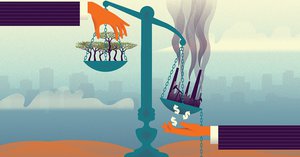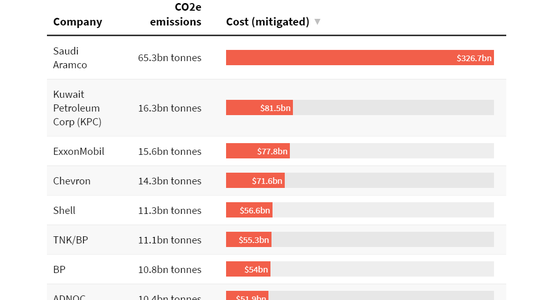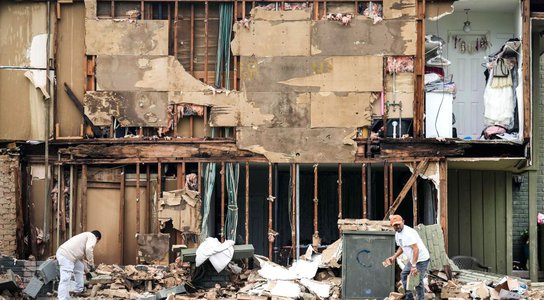Despite the urgent need to safeguard the natural environment to mitigate the worst impacts of global heating, governments have been remarkably reluctant to sign environmental protections into law.
Whilst those defending the environment often find the law used against them – through the criminalisation of peaceful protest, or their rights are ignored when illegal acts are committed against them by companies and local authorities – it’s proven difficult to hold those destroying the environment accountable.
To remedy this situation, Global Witness has joined a growing movement which is calling to establish ecocide as an international crime within the remit of the International Criminal Court (ICC). Currently the court recognises four international crimes: genocide, crimes against humanity, war crimes, and the crime of aggression. We’re joining the growing tidal wave of activists campaigning for ecocide to be added as the fifth crime.
What is ecocide?
Stop Ecocide International has legally defined ecocide as “unlawful or wanton acts committed with knowledge that there is a substantial likelihood of severe and either widespread or long term damage being done to the environment being caused by those acts.”
In other words, it’s any kind of activity which knowingly causes significant environmental harm – burning large quantities of fossil fuels, cutting down swathes of climate-critical forest, etc. It’s aimed at taking on the very worst culprits while reinforcing the obligation of states to take steps to stop the destruction of the environment.
Why is a new crime needed?
As it stands, the legal framework makes it difficult to pin legal charges on those who are causing or contributing to environmental destruction. While there have been a series of recent valiant attempts to sue fossil fuel corporations in civil court for covering up evidence that their activities were causing global warming, the defendants have largely been able to get away scot-free.
Part of the reason for this is that ‘the environment’ has not had the ability or standing to bring a legal action for harm done to it. Legal accountability usually relies on there being some sort of damage to people or private or public property protected by law. That’s tricky when polluters are contributing to a broader destructive system which causes damage at a global level.
Criminalising ecocide would fill this legal gap, and allow individuals (and companies in some jurisdictions) to be prosecuted for engaging in acts with knowledge that they are substantially likely to damage the environment, without the need to show harm to any individual person.

Why the International Criminal Court?
We think that ecocide should be an international crime, first and foremost, because the climate crisis is a global problem. Its causes and effects aren’t contained within national boundaries, and often the parts of the world suffering the most environmental damage, and those causing the greatest destruction, are in very different jurisdictions.
Creating ecocide as an international crime would flatten this legal disparity, allowing environmental vandals to be held to account across the borders of ICC member states. Of course, it’s hoped that once established at the international level, ecocide will be adopted by national governments. Though in the UK, Belgium and Ireland, there are policy calls to recognise ecocide as an international crime.
But with the ICC to fall back on, we wouldn’t need to rely on national governments alone to police environmental crimes if they are unwilling to do so – particularly if they are complicit in such destruction themselves.
An international crime would have real teeth. Not only would this act as a strong deterrent, but it would have symbolic value too – sending a clear message that the culture of impunity with regards to environmental destruction is over. The ICC only prosecutes the most serious international crimes, and the weight of moral condemnation from that is much greater than breaching a national law.
Adding ecocide to its roster of crimes could also be very beneficial for the ICC, which has faced (not unfounded) accusations in recent years that it only targets countries in the Global South, holding them to a different standard to richer and more powerful countries. Because the worst offenders for environmental destruction are based in the Global North, prosecuting ecocide would allow the ICC to go a long way to dispel this impression.

Why is Global Witness getting involved?
Through our investigations, we have uncovered example after example of serious environmental harm being perpetrated by companies often with governments failing to hold them to account, only for them to face little to no consequences for their actions. Establishing ecocide as an international crime would go a long way to closing the accountability gaps which exist across our areas of work.
For our Forests campaign, it would mean that we are no longer reliant on voluntary commitments from companies and banks that they will change their ways when it comes to fuelling deforestation, and provide legal recourse should they fail to live up to these pledges. It would provide a strong incentive for robust government oversight and intervention when needed, including via preventative measures through regulation.
For our work on fossil fuels, it would provide an effective counter to the distract and delay tactics employed by the fossil fuel industry to deter politicians from taking the urgent and transformative action we need to avoid the worst impacts of the climate crisis. With the status of an international crime, politicians would no longer be able to frame environmental destruction as a fringe concern which can be deprioritised. Politicians could be held to account for failing to take the steps necessary to stop environmental destruction by domestic fossil fuel actors.
And for our Defenders campaign, it will help to bring justice to those who attack the people protecting the natural world. If accepted at an international level, states will have to consider how they incorporate ecocide into national law – and that includes providing a mechanism by which companies can be held to account for environmental destruction, thereby indirectly also protecting land and environmental defenders from harm. Currently, there is a lack of justice for those who are killed, intimidated or otherwise harmed for standing up for planet.
What next?
We’re continuing to work with Stop Ecocide International, a coalition of NGOs and legal experts to raise awareness of why creating ecocide as a crime is a key part of the fight against climate change. Join our mailing list to stay up to date with the campaign, and follow us on social media for more regular updates on all our areas of work.


